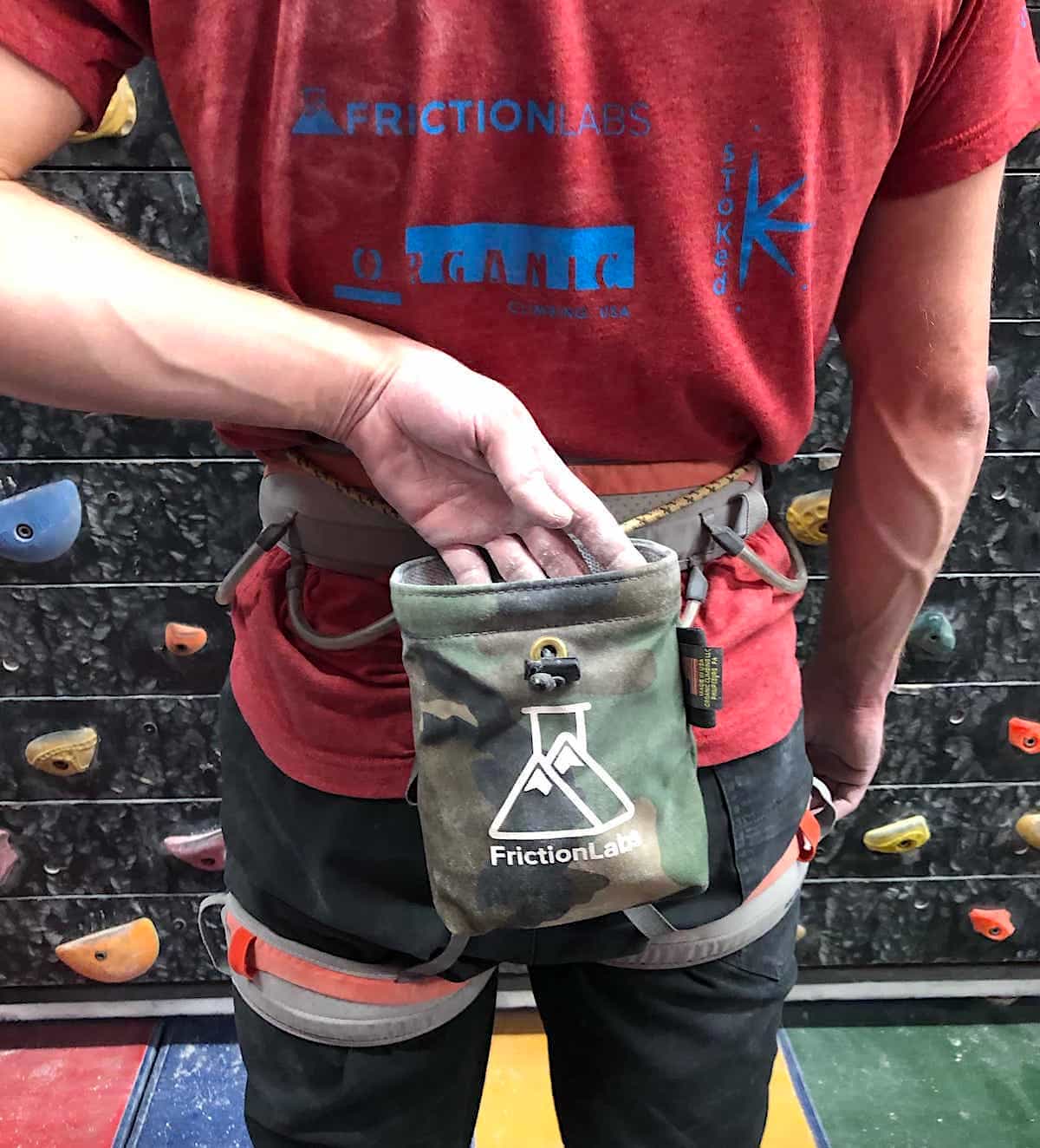Chalk is used for rock climbing as it helps to absorb sweat, increase friction and prevent slipping. Rock climbing requires a strong grip and maximum friction to prevent slipping.
Climbers’ hands tend to sweat which makes it harder to maintain grip, especially in humid or hot weather conditions. Chalk helps absorb moisture and sweat from hands, providing climbers with a dry and more secure grip. Not using chalk may lead to dangerous accidents as it increases the chances of losing grip and falling.
As a result, chalk has become an essential component in the rock climbing toolkit. Not only is it necessary for safety purposes, but it also enhances the overall climbing experience. In this article, we will explore the types of chalk used in rock climbing, its advantages and disadvantages, and how to use it properly.

Credit: frictionlabs.com
Understanding The Importance Of Chalk In Rock Climbing
Rock climbing is a sport that requires athleticism, strength, and a good grip. To achieve the right grip, rock climbers use chalk. Chalk is a powdery substance made from magnesium carbonate, which creates a drying effect on hands and fingers, reducing sweat and increasing friction.
In this post, we’ll explore the importance of chalk in rock climbing and why climbers rely on it. So, let’s dive in and understand the importance of chalk in rock climbing.
How Chalk Improves Grip
Chalk is essential in rock climbing as it improves grip. When our hands perspire, it can create a slippery surface on the rock or climbing equipment, which can lead to greater risk of slipping or falling. Using chalk absorbs the moisture and oils from the hands, creating greater friction between the skin and the climbing surface.
This additional grip allows climbers to make holds more confidently and reduce the risk of falls.
Here are a few ways how chalk improves grip through its properties:
- Provides a dry surface on holds and equipment
- Reduces the risk of slipping
- Increases friction between the hands and the climbing surface.
The Science Behind Chalk Absorption
Why does chalk work? It’s because of the science behind it. Magnesium carbonate, the chemical compound found in chalk, absorbs moisture. Rather than evaporating like sweat from your hands, this compound soaks up moisture, creating a dry and absorbent layer on the skin.
The dry layer created by chalk reduces the level of sweat in hands and subsequently increases the grip.
Here are a few ways how chalk does this:
- Absorbs moisture from hands
- Creates a dry layer on skin
- Reduces sweat and increases friction
The Benefits Of Using Chalk In Rock Climbing
Chalk has numerous benefits for rock climbers. It helps first time and seasoned climbers alike to take their climbing to the next level.
Here are a few benefits of using chalk:
- Provides a dry layer which results in increased friction
- Helps reduce sweaty hands and the risk of slipping
- Provides confidence to climbers by increasing grip and comfort
- Helps climbers keep a secure grip on surfaces
- Helps in reducing injuries by giving climbers a better grip
All in all, chalk is an essential component that forms the foundation of rock climbing. It’s not only for professionals, but beginners will also find that chalk helps them advance their skills and confidence on the surface. From amateurs to experts, all rock climbers rely on chalk.
It’s an affordable and effective way to improve grip and reduce the risk of falls while keeping you safe and secure on the surface.
Types Of Chalk For Rock Climbing
Traditional Chalk Powder Vs. Liquid Chalk
Rock climbers have been using traditional chalk powder for decades. It is inexpensive and easily accessible at most sporting goods stores. Traditional chalk powder comes in various forms, including loose chalk or chalk balls. Loose chalk, as the name implies, is simply powder placed in a bag or a container.
On the other hand, chalk balls are mesh bags filled with chalk powder.
Liquid chalk, on the other hand, is a newer and less conventional form. It’s a thick and sticky solution that is applied to the hands, just like traditional chalk. The advantage of this form is that it creates less dust and lasts longer on hands.
Pros And Cons Of Different Types Of Chalk
While both traditional chalk powder and liquid chalk have their uses, they also come with some disadvantages. Here are some pros and cons to consider when choosing between traditional chalk powder and liquid chalk:
Traditional chalk powder:
- Pros: Easy to find, affordable, easy to apply, available in bulk
- Cons: Dust can be messy and create respiratory issues, not as long-lasting as some other chalk options
Liquid chalk:
- Pros: Lasts longer than traditional chalk, less messy, more effective on sweaty hands
- Cons: Can be expensive, limited availability in stores, not as readily available in bulk
How To Decide Which Type Of Chalk Is Best For You
If you’re still unsure which type of chalk is best for you, here are some factors to consider:
- Personal preference: Do you prefer working with traditional chalk or liquid chalk?
- Indoor or outdoor climbing: Is the climbing you do mostly indoors or outdoors? Environmental factors such as humidity and wind may influence which type of chalk to use.
- Skin sensitivity: Does your skin have any adverse reactions to one form of chalk?
- Budget: How much are you willing to spend on chalk, and do you have access to it in bulk?
Ultimately, the best type of chalk for you will depend on your individual preferences, as well as your specific climbing needs and circumstances.
Frequently Asked Questions For Why Chalk For Rock Climbing?
Why Do Climbers Use Chalk?
Climbers use chalk to absorb sweat and improve grip on holds, leading to more secure and efficient climbing.
Is Chalk Necessary For Climbing?
Chalk isn’t necessary for climbing, but it can improve grip and prevent slipping and accidents.
What Kind Of Chalk Is Best For Climbing?
Magnesium carbonate chalk is the best type of chalk for climbing because it is affordable, non-toxic, and easily accessible.
Conclusion
As we have seen, chalk is an essential tool for rock climbers. Whether you are a beginner or an experienced climber, chalk can help you improve your grip and prevent slipping. Chalk absorbs sweat, oils and moisture, giving you a good grip on the holds.
It also helps to keep your hands dry and bacteria-free, reducing the risk of developing skin irritation or infections. Different types of chalk cater to your varying needs and preferences, including block chalk, loose chalk and liquid chalk. Keep in mind the ethical considerations associated with the use of chalk, especially when climbing in environmentally sensitive areas.
To conclude, chalk is not just a useful accessory for climbers, but is also a necessity for ensuring safety and success on the rock. So, don’t forget to pack your chalk bag before you head out for your next climb!



